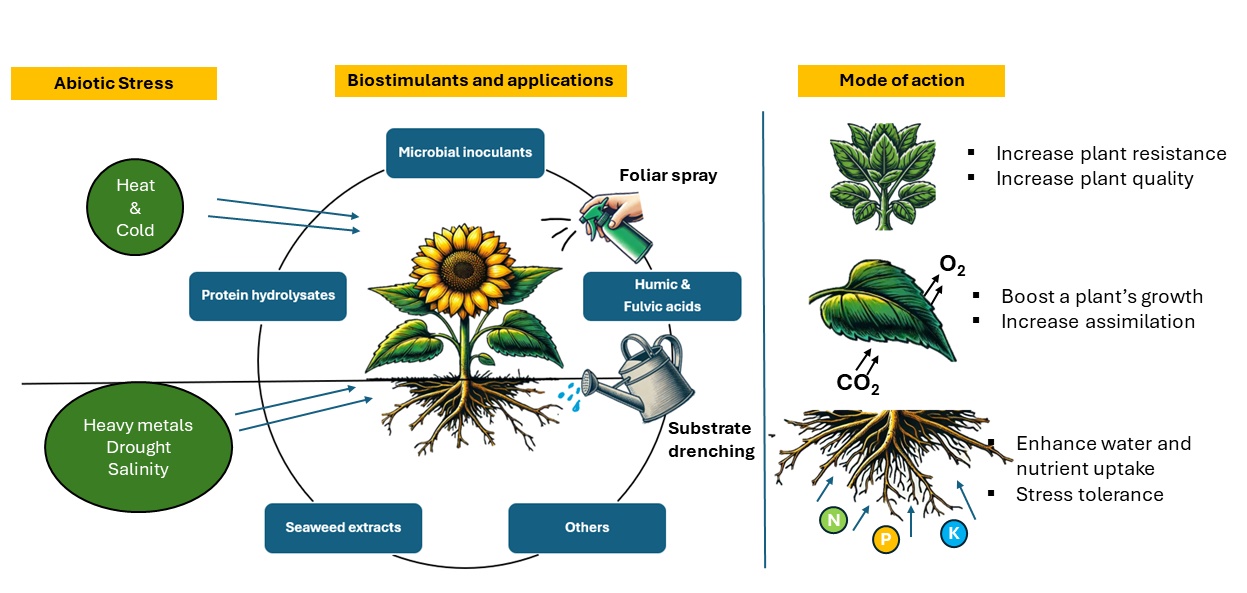
Published 2024-07-01
Keywords
- Abiotic stresses,
- bioactivators,
- growth stimulation,
- ornamental plants,
- plants biostimulants
- stress tolerance ...More
How to Cite
Copyright (c) 2024 Mehmet Tütüncü, Akife Dalda Şekerci, Dicle Dönmez, Tolga İzgü, Musab Abdukadir Isak, Özhan Şimşek

This work is licensed under a Creative Commons Attribution 4.0 International License.
Abstract
Researchers have recently sought a comprehensive strategy to reduce the harmful effects of synthetic chemicals in agricultural production to improve productivity and quality. Biostimulants benefit plants by protecting soil and water resources and eliminating adverse environmental effects from pesticides and chemical fertilizers. Plant biostimulants, also called bioactivators, are becoming increasingly well-liked in the agricultural sector due to their capacity to boost a plant’s growth rate and increase its resistance to stress. Biostimulants are frequently used because they can increase crop quality, nutrient assimilation, growth rate, and stress tolerance. This article thoroughly examines biostimulants’ effects on ornamental plants, concentrating on their ability to withstand environmental stressors. Prior studies have demonstrated that a combination of non-pathogenic microbes, protein hydrolysates, humic and fulvic acids, and algal extracts benefits ornamental plants. This review’s main aims are biostimulants’ effects on raising agricultural yield, enhancing nutrient uptake, enhancing photosynthesis, and shielding plants from biotic and abiotic stress. The role of biostimulants in more resilient and sustainable farming practices is also covered





